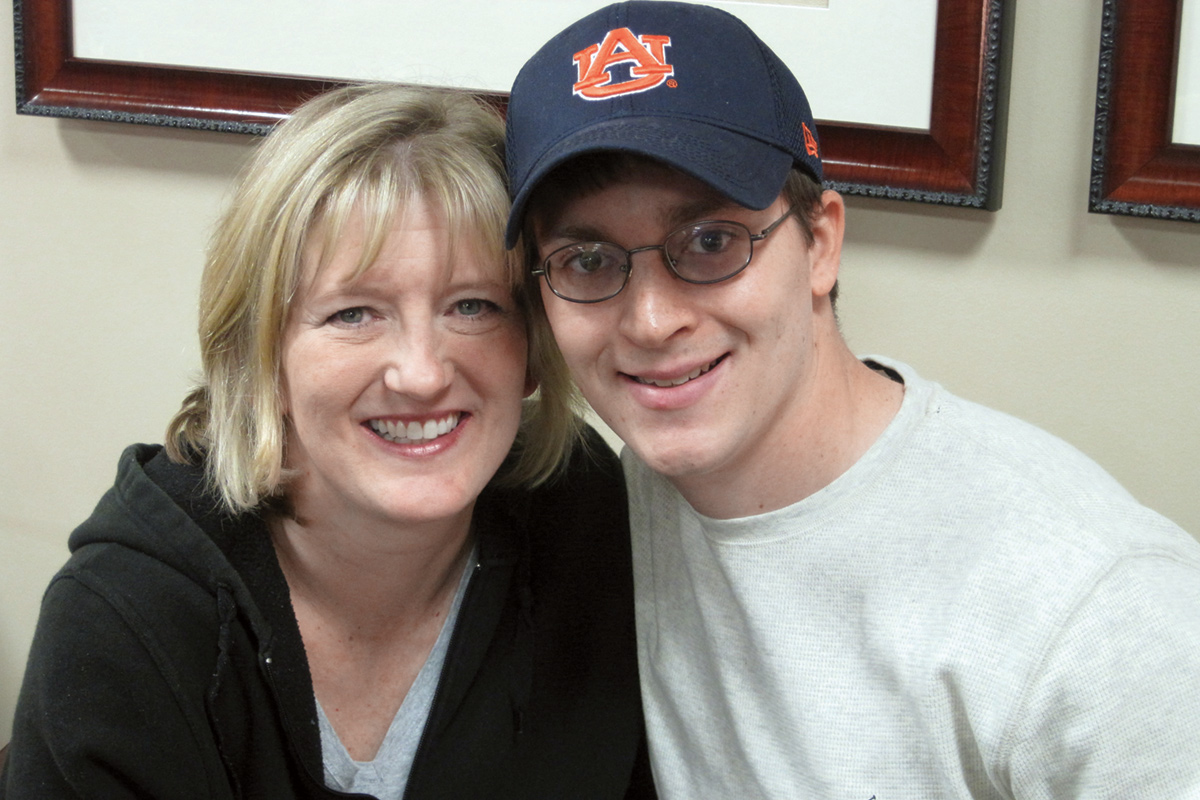'I Needed to Do More'
Emory nurse donates kidney to patient

Courtesy Lance Skelly
Emory transplant nurse Allison Batson felt an outpouring of compassion for the young, critically ill patient on her floor.
Clay Taber, a native of Columbus and a recent graduate of Auburn University, was planning to propose to his college sweetheart and was excited about his future. But the twenty-two-year-old’s plans had been put on hold by a mysterious illness that caused complete kidney failure.
“My daughter had just gotten married that summer, so Clay and I kind of bonded over talking about proposal ideas,” Batson says.
In August 2010, just after his graduation, Taber had vacationed near Panama City, Florida, and swam in the ocean. It was during the months following the Deepwater Horizon Oil Spill. Feeling ill with night sweats, chills, and a cough upon his return, Taber went to his doctor and tested positive for mononucleosis.
The symptoms continued, however, and it was discovered that his kidneys were failing. He was diagnosed with Goodpasture’s Syndrome, a rare, life-threatening autoimmune disorder that can result in kidney disease and lung hemorrhage. Experts believe the disorder can be triggered by a viral infection or by overexposure to crude oil products.
Taber was transferred to Emory University Hospital, where he spent weeks in the transplant unit, undergoing dialysis and plasmapheresis, a blood purification procedure. “Immediately when Clay came onto our unit, he became a special patient that everyone just gravitated to,” says Batson. “The whole world was his, with the exception of this incredibly rare illness that hit him out of the blue. I have children his age, and I felt the same kind of pain his mother was feeling. Something inside me said I needed to do more.”
Taber was placed on a kidney transplant waiting list and was sent home, where he continued dialysis and other therapy. In September 2011, his mother, Sandra Taber, was tested, but because the lining of her kidney was too thin she didn’t qualify as an organ donor.
“When Sandra was having her kidney biopsy,” says Batson, “I approached her and said, ‘I pray that you will be able to donate to your son, but if you for some reason cannot and you don’t have another compatible donor in your circle, I would hope that you would consider me.’ I knew that my blood type was compatible.”
Soon after, Batson underwent the full testing process and was confirmed as a match.
“A living donor makes it less likely that his body would reject the kidney versus a deceased donor,” Batson says. “If Clay were placed on the deceased donor list, his wait would have been three to five years. I just felt like that was no way for a young man to start his married life.”
On January 10, 2012, the families of both Batson and Taber gathered in the early morning hours at Emory University Hospital. Batson was wheeled into an operating room while Taber was prepped for surgery thirty feet away in another room by a team led by transplant surgeon Christian Larsen 80C 84M 91R, director of the Emory Transplant Center.
Hours later, both patients were resting comfortably on floor 7G, where they had met just months before. They walked laps together around the hall to recover.
“Both Clay and I have been very blessed by this experience,” says Batson, who returned to work in late February. “The attention has been both exciting and humbling. I have a new insight into taking care of my patients, especially my donors."



